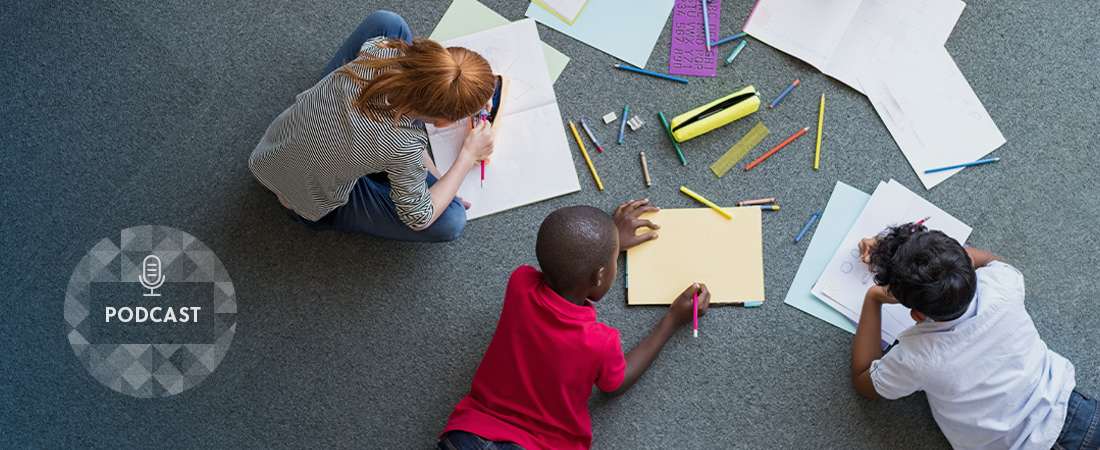How Schools Can Support Students Affected by Opioids

Listen in as our experts discuss a wide range of current topics. Check out all of our podcasts.
Seeing a parent or caregiver struggle with opioid misuse can be a traumatic experience for a child. And when that child goes to school, those traumatic experiences can affect how they learn and play.
EDC’s Shai Fuxman and Julie Riordan have been examining what schools are doing to support children affected by the opioid crisis. In this podcast, they discuss how traumatic experiences can affect kids at school and also highlight some programs that are making a difference.
On the way trauma can affect learning
Fuxman: The cognitive and academic impact of trauma can make the child struggle with concentration, make them act out, [or] misbehave. It can also make them lose interest in things they were interested in—whether sports or a particular activity they were doing at school.
On innovative programs that help children after traumatic experiences
Fuxman: Plymouth County, Massachusetts, [formed] a collaboration between law enforcement, schools, and the District Attorney’s office. They trained police officers to identify situations where there is a child involved—such as an overdose or instance of domestic violence. And the police then call an identified person at the child’s school, and tell them that this particular child . . . has experienced a difficult situation. Then the school is ready . . . to support that child for the days and weeks to follow.
On approaches that work
Riordan: I think it’s important to make sure you have a systemic approach—a whole school, whole system approach—before implementing anything new . . . That requires planning and coordination at all levels of the system, from the state to the district to the school—and even those inside the school, [such as] teachers, principals, coaches as well.

